
摄影/报道/写作 常驻北京 拍的照片:Instagram@xiaohuiphoto available for assignments 联系方式:xiaohuiwucn@gmail.com
Travel After Borders Reopen | Mobility, War and Strangers
In mid-February, I set off from Beijing and went to Kazakhstan via the Xinjiang land port, starting my first international trip after the border reopened. In Almaty, the largest city and former capital of the former Soviet republic, I met Chinese Kazakh immigrants who moved their families, Russian youths who avoided Putin’s military mobilization orders, and Jiangsu Suqian people who insisted on going to Ukraine alone, keeping their family names But the descendants of Koreans in Central Asia who can no longer speak Korean... so much so that when I returned to Beijing, which was shrouded in blowing sand, the words "foreigners" kept circling in my memory about this trip.
Going to Kazakhstan was a temporary idea, and I knew almost nothing about it except for two travel notes about travel in Central Asia. When I arrived at Khorgos Port, I could see the ancient snow-covered Tianshan Mountains as far as I could see. When I waited in line to call the number to take the transit bus with the tired passengers carrying big bags and small bags, my heart repeated. When people ask me the question, "Why are you here?" Indeed, few people look like tourists.
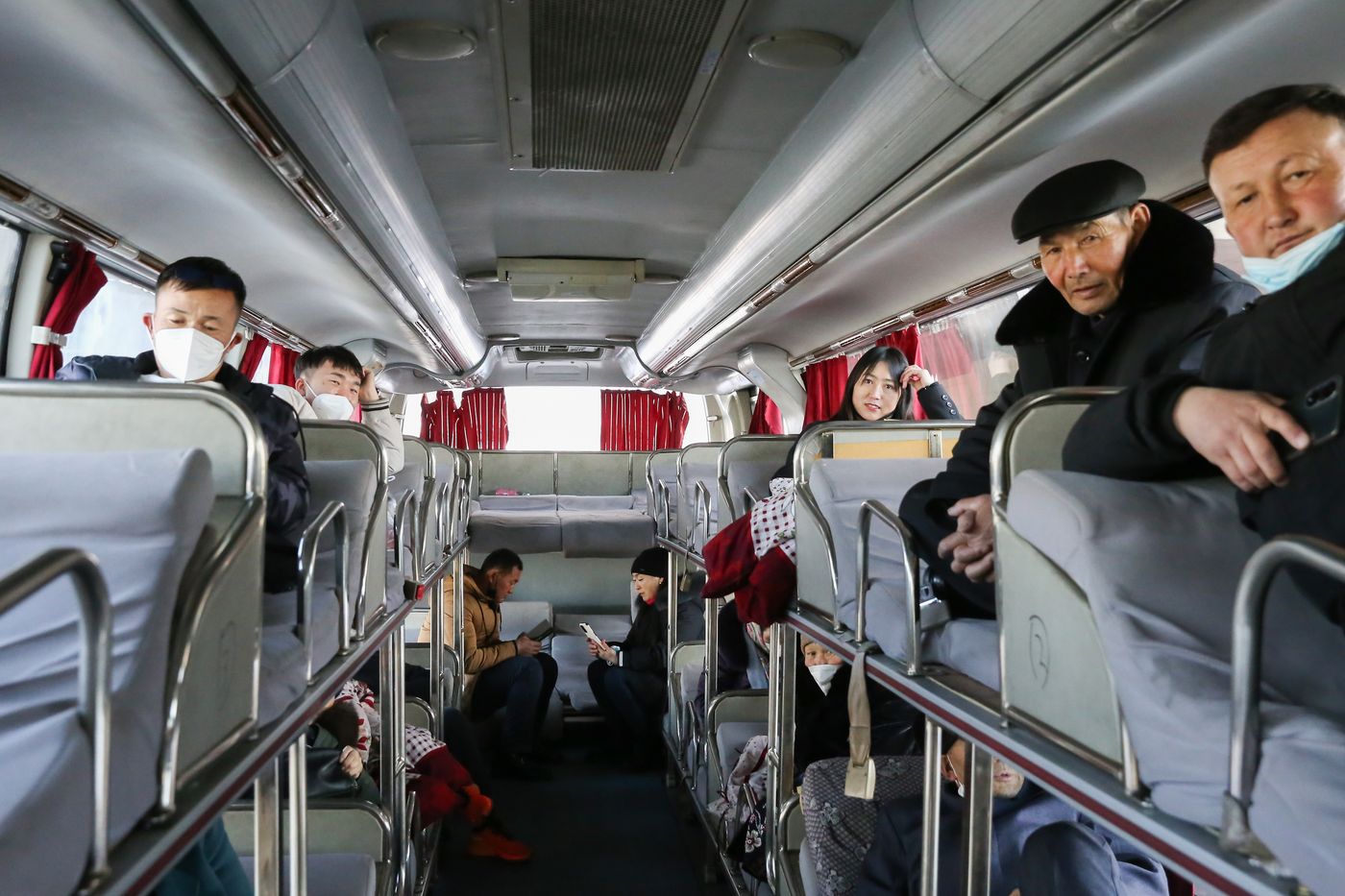
Soon, I didn't look like a tourist either. Mikao, a Kazakh boy carrying a dobra, stood out in the crowd. He struggled to push three suitcases, a large woven bag, and several other pieces of luggage on a small cart. So, I, who originally only had a backpack, took an unopened 28-inch Hisense LCD TV with my left hand, and picked up a few cushions embroidered with wool and exquisite patterns with my right hand. After a while, a Kazakh aunt asked me if I could help, and handed over clothes stuffed in a large plastic bag.
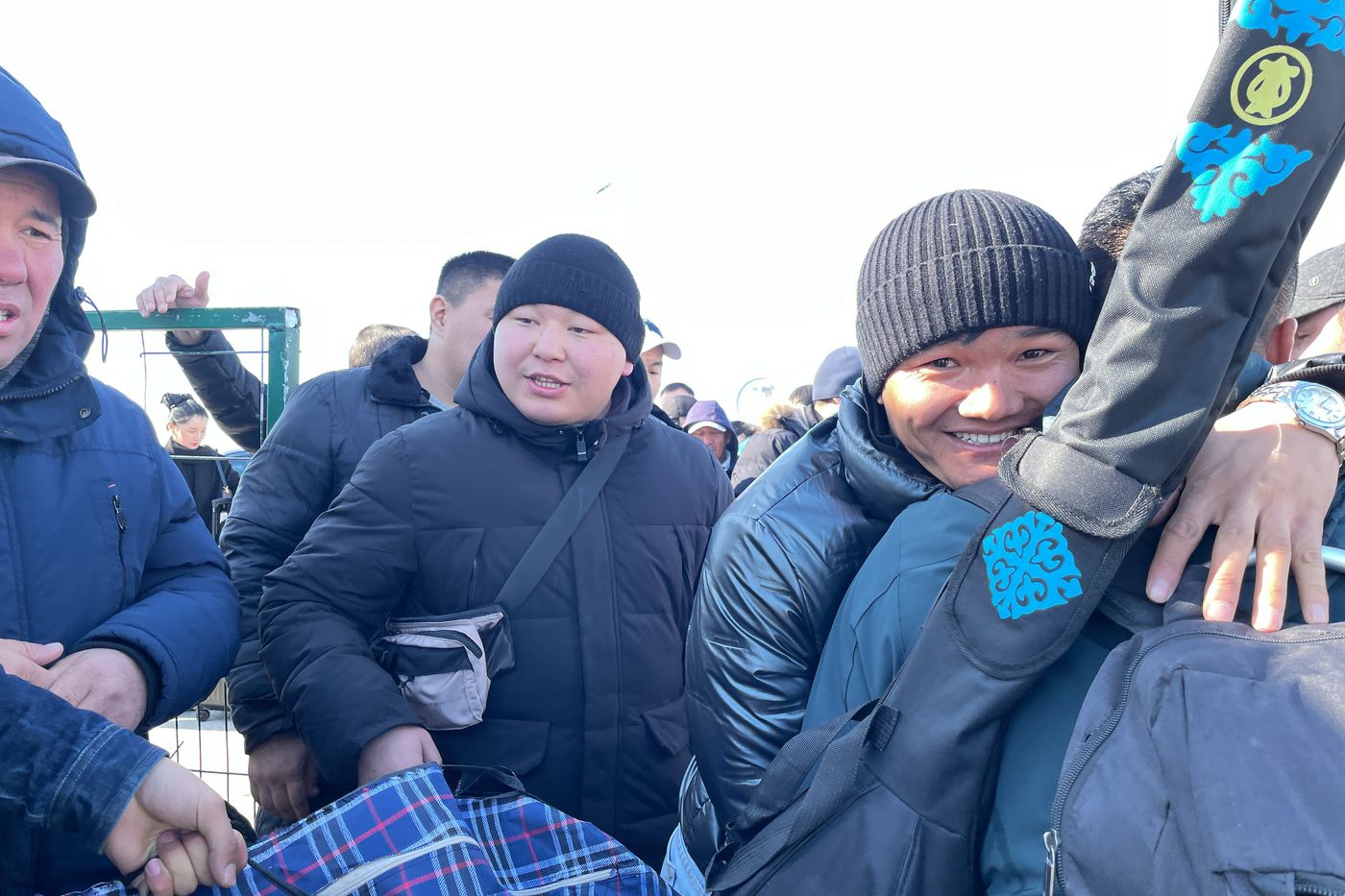
"My son is going to university in Almaty, who can help me bring him two pairs of shoes?" An uncle got on the cross-border bus and asked several times in Kazakh and Chinese, but no one answered. Not enough strength, he looked around the gray double-decker passenger bus again and again, and got off the bus.
Perhaps because of the trust built by helping with luggage, Mikao invited me to take a ride with his family to Almaty. The public transportation at the port has not yet resumed, and the Kazakh side of the entry is crowded with carpool drivers looking around. Mikao’s wife’s younger brother came to pick him up. On the outskirts of Almaty, half an hour’s drive away, we passed the home of his parents-in-law, where his wife and son lived.
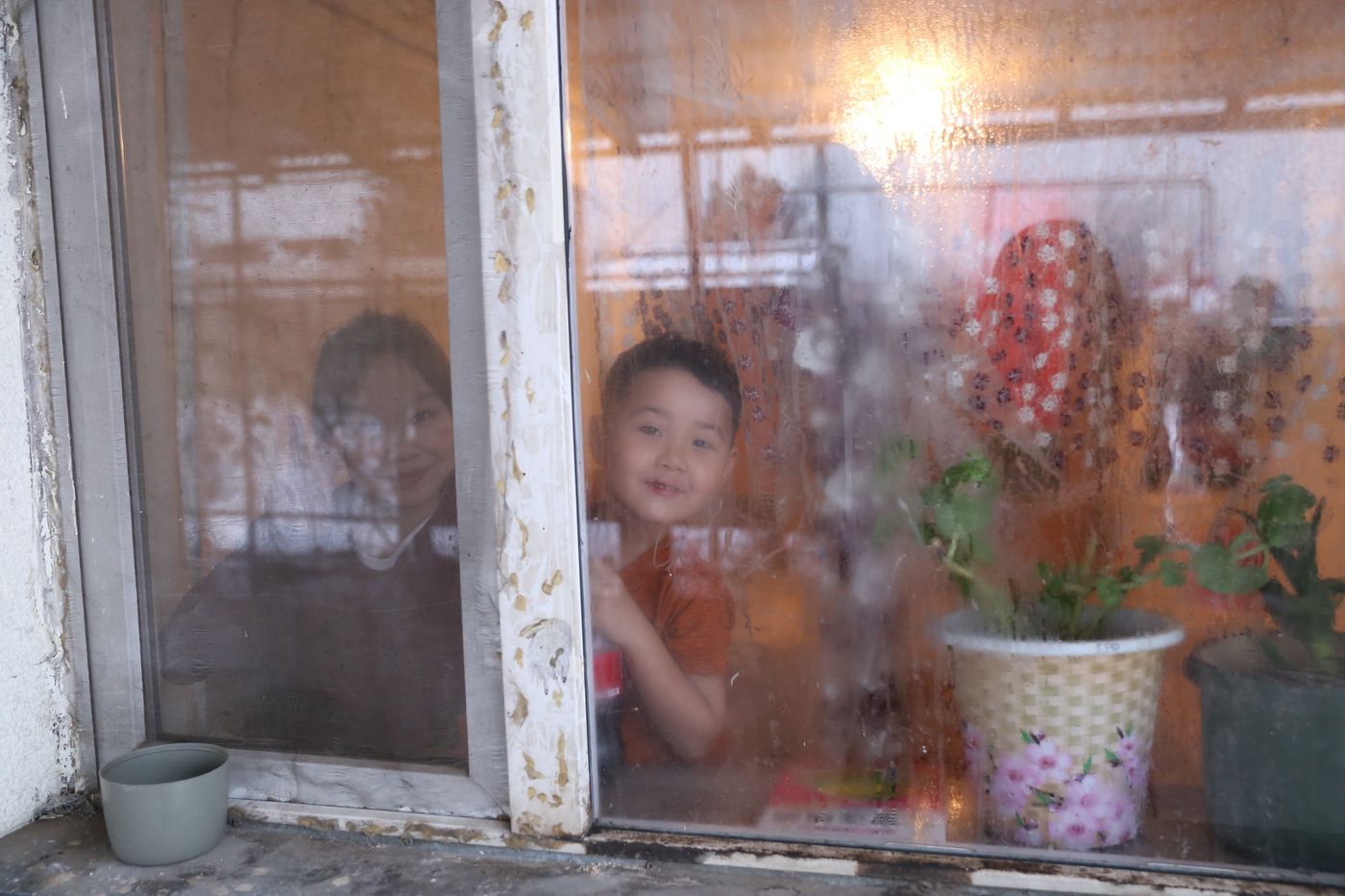
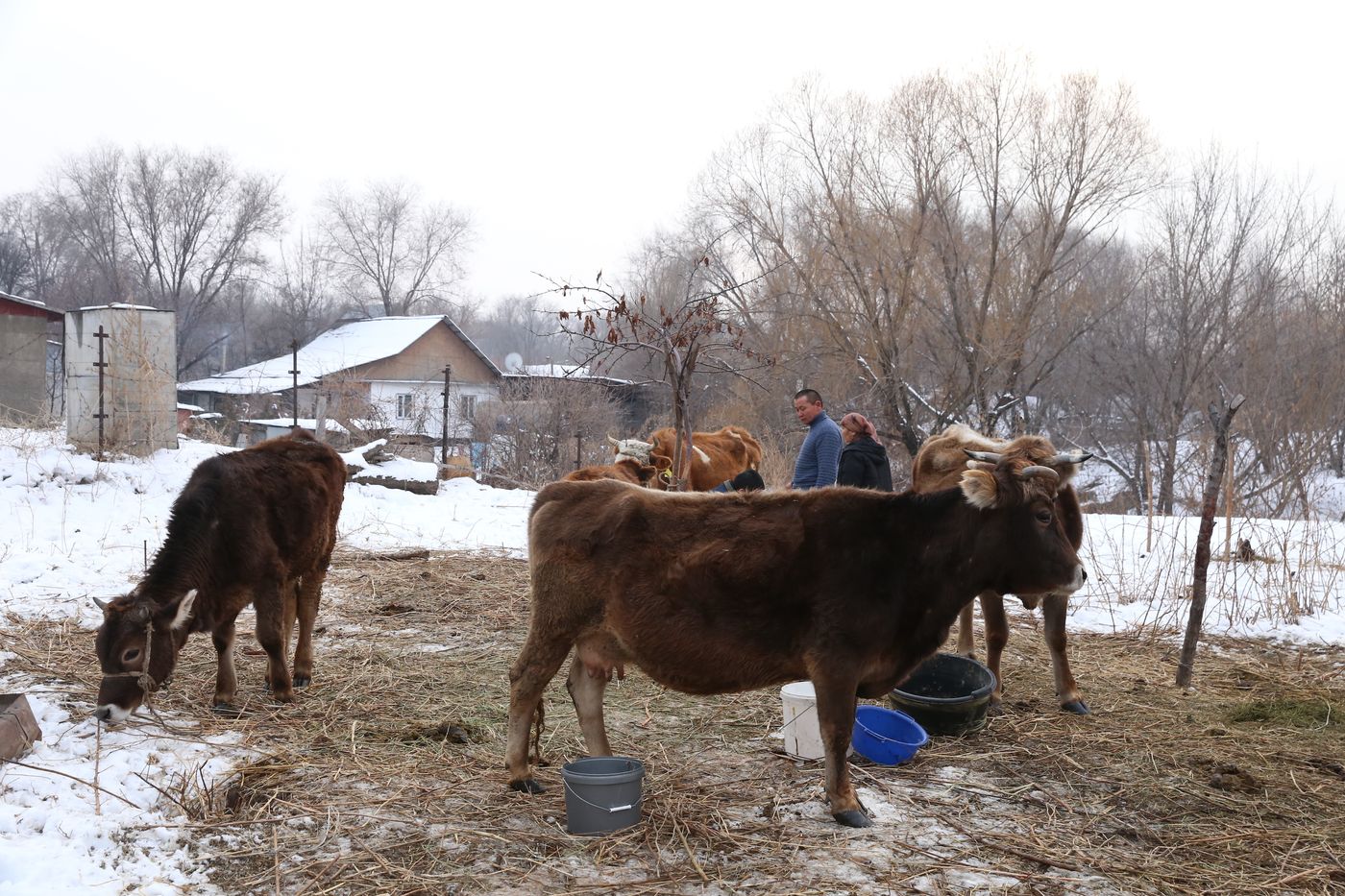
L, another Jiangsu Suqian fellow who carpooled together, finally relaxed after seeing a small three-story house in front of him and the smiling Mikao family who welcomed us. Before that, he vaguely expressed to me that he was worried about being cheated. Insisting on not stopping for meals, the destination of his trip is Ukraine, and Kazakhstan, which is visa-free, is the first stop. He wants to reach Ukraine as soon as possible, although he does not know how to get there.
"How much did you spend building this house? It's really good." L looked around, Mikao's father-in-law was milking a cow in the backyard, his wife and mother-in-law were eating wide noodles, and the traditional Kazakh food smoked horse meat and Horse intestines. Mikao’s wife’s younger sister, a little girl who just entered elementary school, was looking through Kazakh textbooks and doing homework. When she took the white rabbit toffee I took out of my bag, she grinned, “It’s so beautiful.” The little girl's Chinese vocabulary is limited. In the short communication with me, she used this word to describe everything she likes.
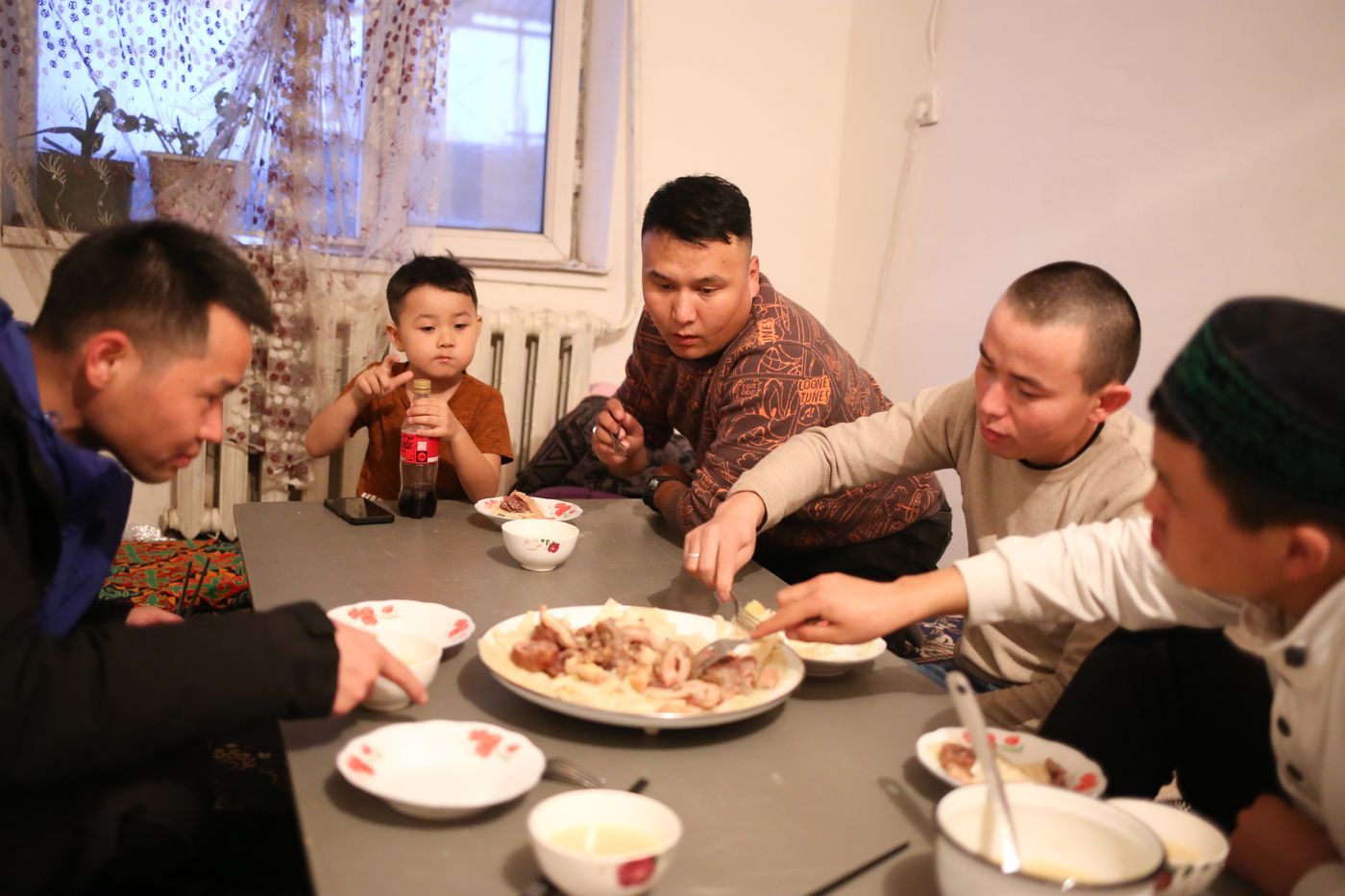
"Have you already immigrated here?" L asked, "Do you think you are Chinese or Kazakh?" Mikao ran into the room excitedly, took out his passport and ID card, "Look, I am Chinese , I am Chinese.” A few years ago, Mi Kao and his wife’s family came here from their hometown Xinyuan County, Yili Prefecture, bought land, built a house, and settled down. Affected by the epidemic, Mikao has been alone in the country for the past few years. This time, he plans to live in Almaty for a long time.
After dinner at Mikao's house, his wife's brother continued to drive us to downtown Almaty. On the night of arriving at Airbnb, the host Kim stood in the living room to greet him, with a typical Korean look, until he spoke Russian. Kim's English-speaking wife was not at home, and our communication was difficult with the help of translation software. When I handed over the phone and asked him if he could speak Korean, he said sternly, "No English, no Korean, only Russian".
The landlord and his wife, who kept the family surname "Kim" (金), adopted Russian as their mother tongue. Like many Korean descendants scattered in Central Asia, they can no longer speak Korean, but their eating habits have continued. The refrigerator in the kitchen There is kimchi and of course pickles. In a prominent place in the living room, there is a desk calendar presented by the Korean Consulate General in Almaty. On the back of the desk calendar is Choi Jae-hyun, a national hero who led the Korean War of Resistance Against Japan in the Russian Far East in the early 20th century. Choi Jae-hyun is the first generation of Korean immigrants to settle in Russia. He was born in Gyeongwon, North Korea, across the Tumen River from Hunchun, China.
In 1937, the Soviet authorities forcibly relocated tens of thousands of Koreans from the Russian Far East to Central Asia in the Soviet Union. About 100,000 Koreans were resettled in Kazakhstan. Choi Jae-hyun’s family also experienced the same fate. As the Korean language was banned by the Soviet authorities, fewer and fewer ethnic Koreans could speak their mother tongue over time. After the disintegration of the Soviet Union, Kazakhstan established diplomatic relations with South Korea in 1992, and exchanges between the two countries have become increasingly frequent. During the few days I stayed in Almaty, the tourist group from South Korea was the only tourist group I saw.
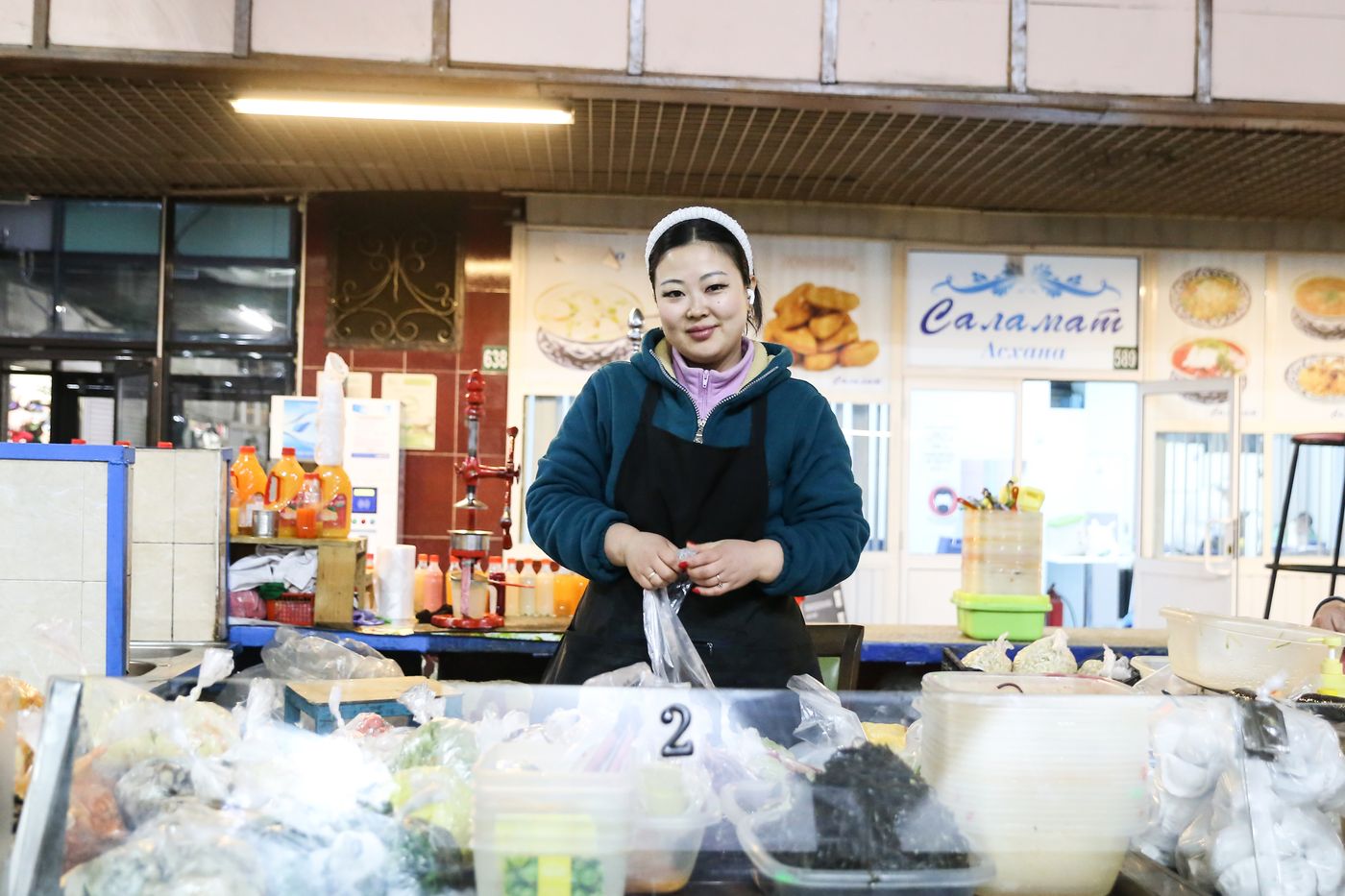
Another Central Asian Korean descendant surnamed Choi may be known to more people-Victor Choi, who is considered the lead singer of the greatest rock band KINO in Soviet history, died in 1990 at the age of 28, until now , there are still many fans in the former Soviet republics. In 2018, a commemorative statue was inaugurated in Almaty, the city where many of the songs on his last album were written. I wasn't looking for the statue, but I passed by it, with a bunch of withered purple carnations draped over its arm.
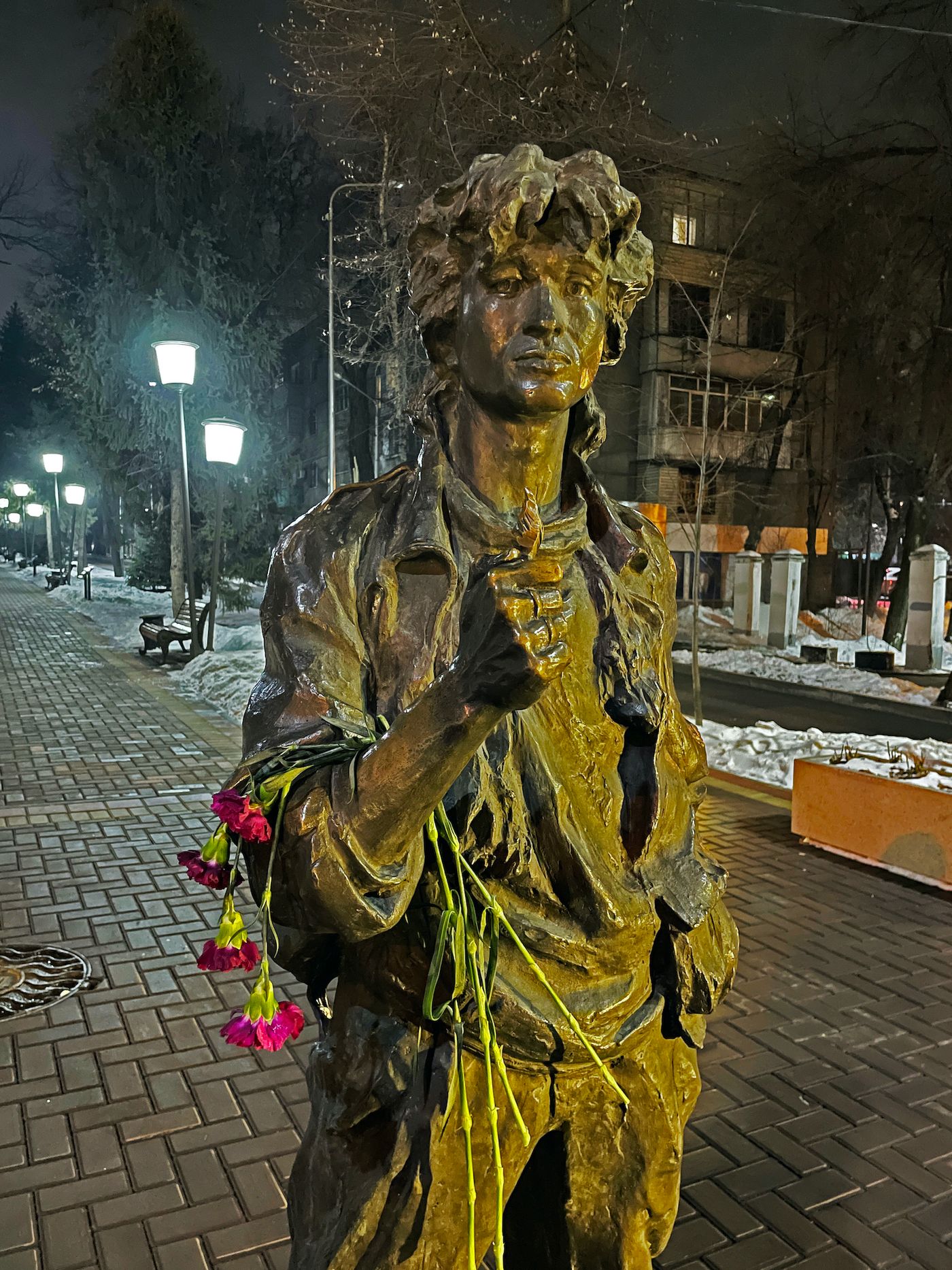
On a snowy night, I walked into the Palace of the Republic of Almaty, formerly known as the Lenin Palace of Culture, and watched a performance in tribute to the KINO band. The cover band came from Russia and was named "Young KINO". It toured and released in various places. album, and worked hard to manage the TikTok account. The performance was held in a high-ceilinged auditorium. At first, people sat on red seats to watch the performance, and their mobile phones lit up the stars. After entering the second half, more and more spectators walked to the front of the stage. Children sat on the shoulders of their fathers, lovers hugged each other, people who were young or not young shook their bodies, and the Russian chorus rang out over and over again.
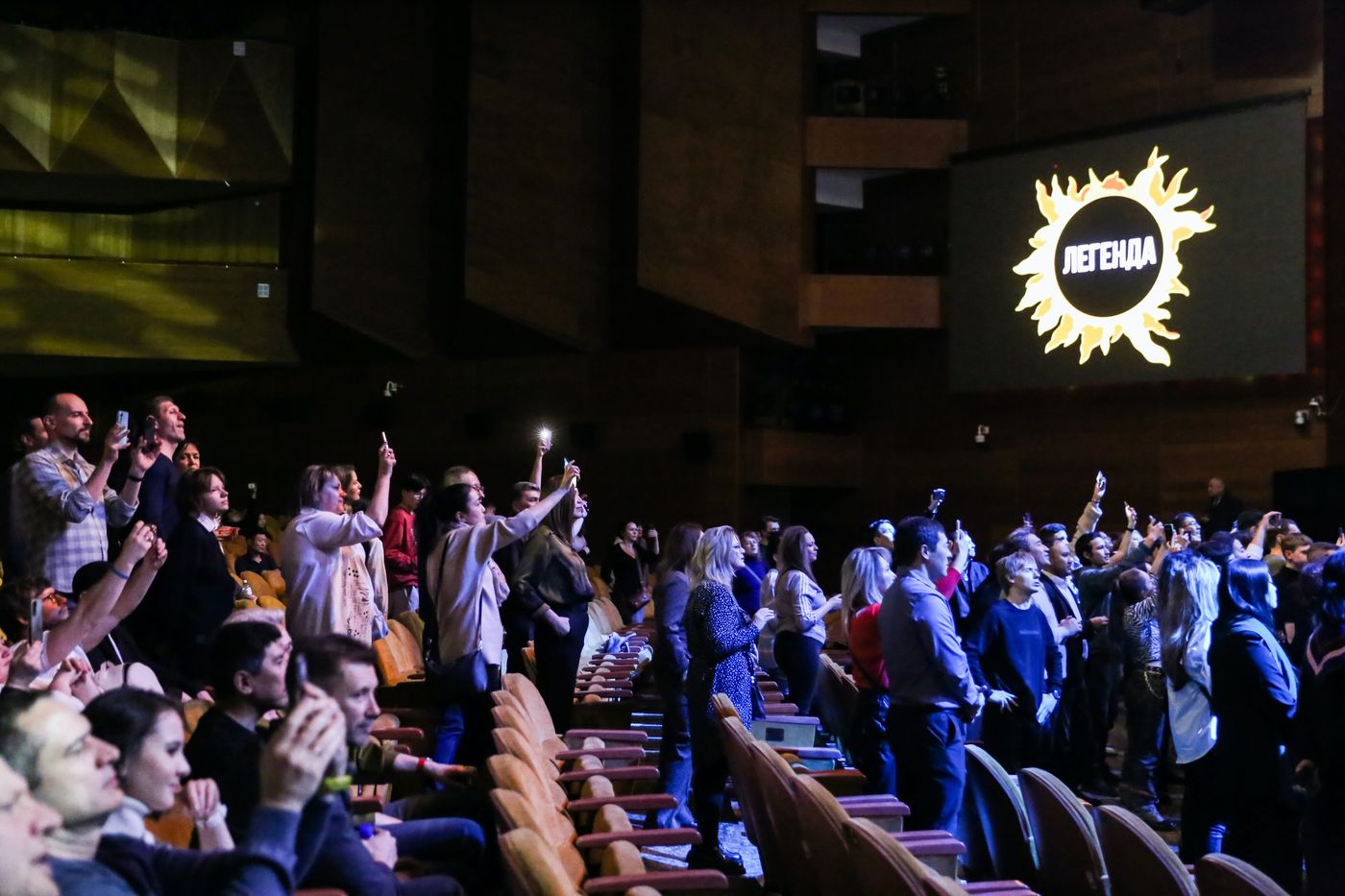
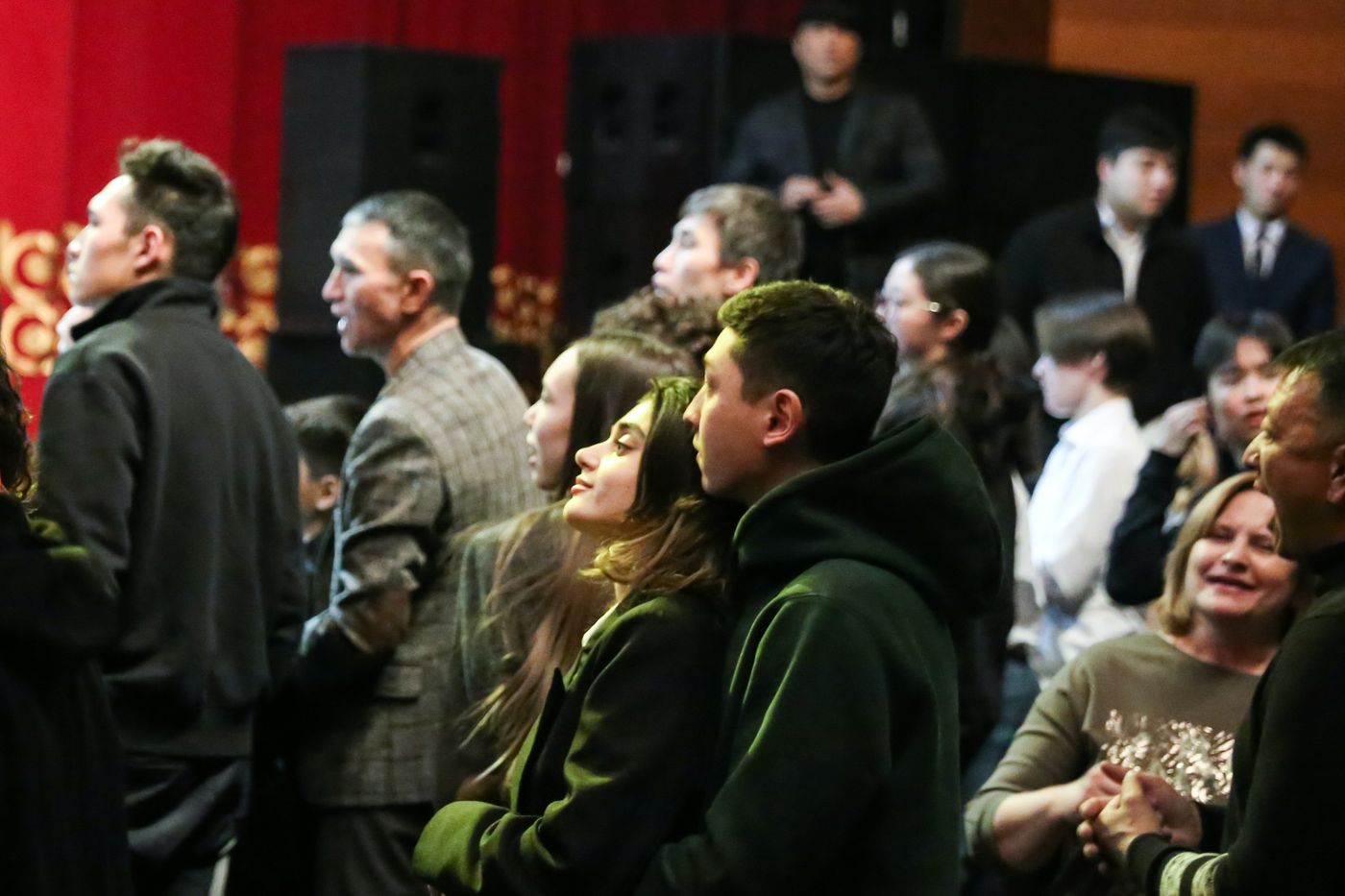
Almaty is backed by the Alatau Tianshan Mountains in Outer Ili. The Airbnb I stayed at is at the foot of the snow-capped mountains. Like many places in this city, you can see the snow-covered Tianshan Mountains when you look up. There is a towering pine tree in the front yard, covered with thin snow that has not yet melted. There are a RV and a private car parked at the door, both of which have Russian license plates. This is indeed the stronghold of Russians. Here, I met several young Russians who came here to escape Putin's military mobilization order. When I was about to leave, I thought, I call it the stronghold of strangers, and it is also my temporary home.
"I arrived in Kazakhstan on September 25th last year," Alexey, who was in his 20s, clearly remembered the date of his arrival, and looked much more relaxed than others, "I am not married, have no children, and have never I have never left my hometown, thanks to Putin, let me start traveling."
On September 21, 2022, Russian President Vladimir Putin delivered a speech and signed decrees on military mobilization. On the 24th, Putin once again signed a series of laws including a maximum of 10 years in prison for those who voluntarily surrendered, deserted and did not respond to conscription orders. Tens of thousands of Russians have sought asylum in the former Soviet republic of Kazakhstan to avoid conscription.
"Putin is crazy," Alexey sighed while shaking his head. "What do you think of Xi Jinping?" he asked me in turn.
I asked him if he had heard of the series of "white paper movement" protests that broke out in China last November, and another Russian, Eugene, shook his head and joined the conversation, "Such behavior is very dangerous in Russia now and will be punished immediately." Sent to prison."
Eugene and Alexei are from the same city, Chelyabinsk. They met in Kostanay, a border city of Kazakhstan, more than 300 kilometers away from their hometown, and then came to the more prosperous Almaty, where they have already Stayed for five months. Eugene had three younger brothers, only one stayed in his hometown, the others left Russia and scattered in different places.
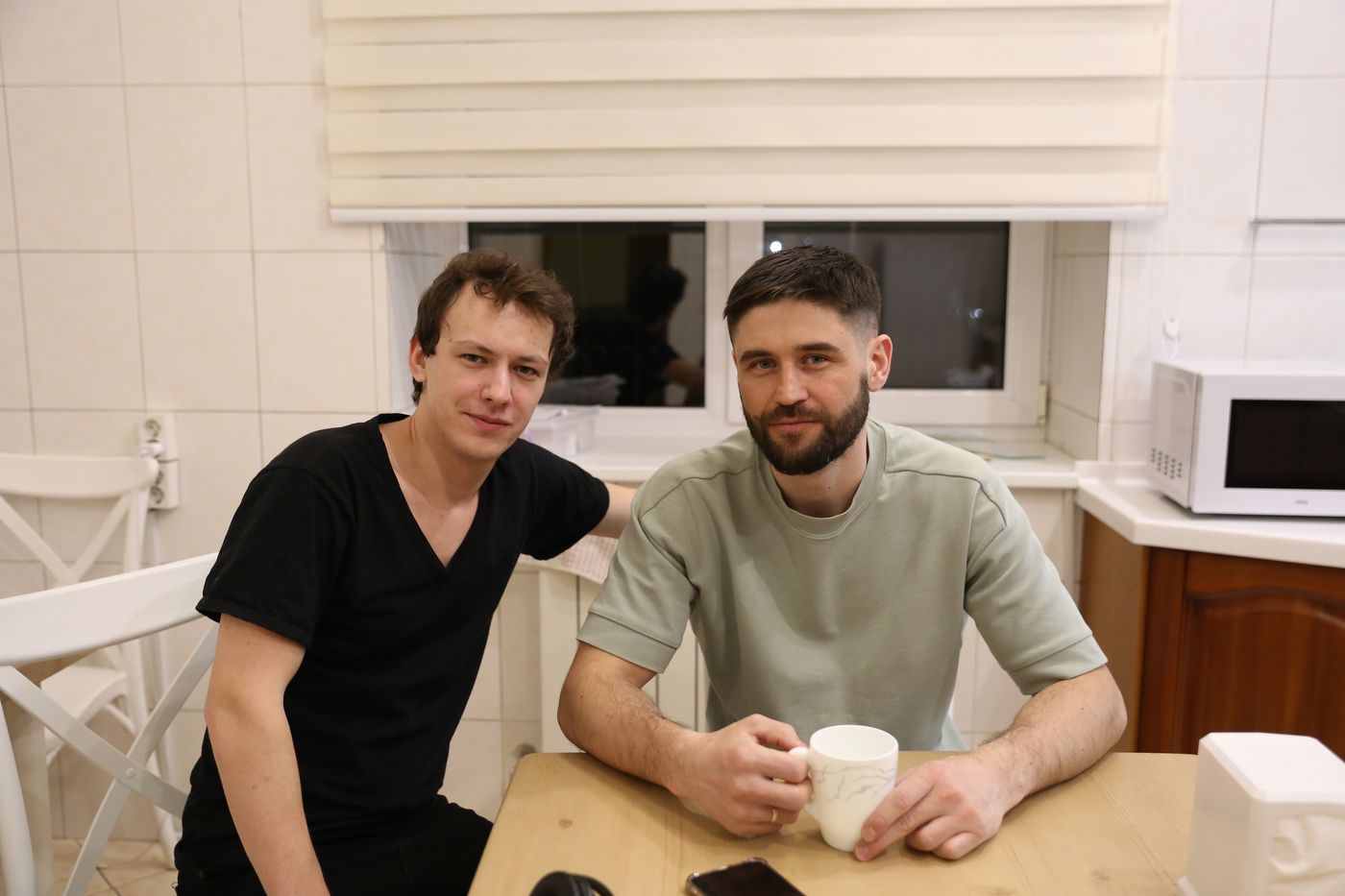
More than 10 years ago, Eugene served in the military at the junction of China, Russia and North Korea, "only 30 kilometers away from Hunchun, China". According to the content of the military mobilization order, such experience made it easier for him to be drafted into the army. A brigade of the Russian Airborne Forces he served in also participated in the 2022 Russian invasion of Ukraine. He showed me photos of his military service at that time, wearing the same blue and white striped sweatshirt as a sailor, wearing a sky blue beret, smiling and facing the camera.
"Your friend who's going to Ukraine, he's cool," Alexey said. A few days ago, L from Suqian, Jiangsu called me early in the morning and took me to find the addresses of the Ukrainian and Polish consulates. He saw the recruitment information of the volunteer army on the headlines today, "Help me, I I can’t speak English or Russian.” My persuasion didn’t help at all, and L kept complaining about his past experience, “In the past three years, is there any other country like China in the world?”
As he spoke, his eyes began to turn red, "I want to fight for democracy and freedom. There is no place to die in the country. This is my last wish." The Russian-speaking driver waited for more than an hour for the driver to come. I bought two cups of coffee and we sat on a bench with a view of the snow-capped mountains. The weather in early winter was still cold, but the sun was so bright and warm that it even reminded me of Dali , the sun moves a little bit, and I move a little bit accordingly.
"He's gone to Astana, otherwise you should meet and communicate." Eugene can speak simple Chinese. In 2008, when the Beijing Olympic Games was about to be held, he applied for a tour group to come to Beijing. He showed me a photo taken with the 29-day Olympic countdown sign on Wangfujing Street. I told him that I would be in the same place and the same place 14 years later. The angle and the countdown to the Winter Olympics were taken together.
In 2013, Eugene came to Shenzhen to do business, sold the latest iPhone 5s from Shenzhen to Russia, and brought it home as a gift for his mother. At that time, he wore a T-shirt with the word "China" written on it, learned to write complex Chinese characters such as "jailbreak" for iOS, and watched couriers packing hills of cardboard boxes on the streets of Shenzhen. He recalled taking the train from Beijing to Shenzhen. During the summer season, he couldn't buy a ticket. He and his friends stood for more than 20 hours. "It was very interesting," he said with a smile.
"However, I will take a 40-hour train ride tomorrow afternoon," said he, his wife and six-year-old son, who hadn't seen each other for half a year, and they were planning to reunite in Kostanay. This border city is about 2,000 kilometers away from Almaty, which is about the same distance as Beijing to Shenzhen. He plans to spend a week there with his family.
On the outskirts of Almaty, there is the highest skating rink in the world - Medeo, where Soviet athletes have broken many world records. Here, I met a girl from Kazakhstan who was wearing the Beijing Winter Olympics uniform with "Beijing 2022". personnel.
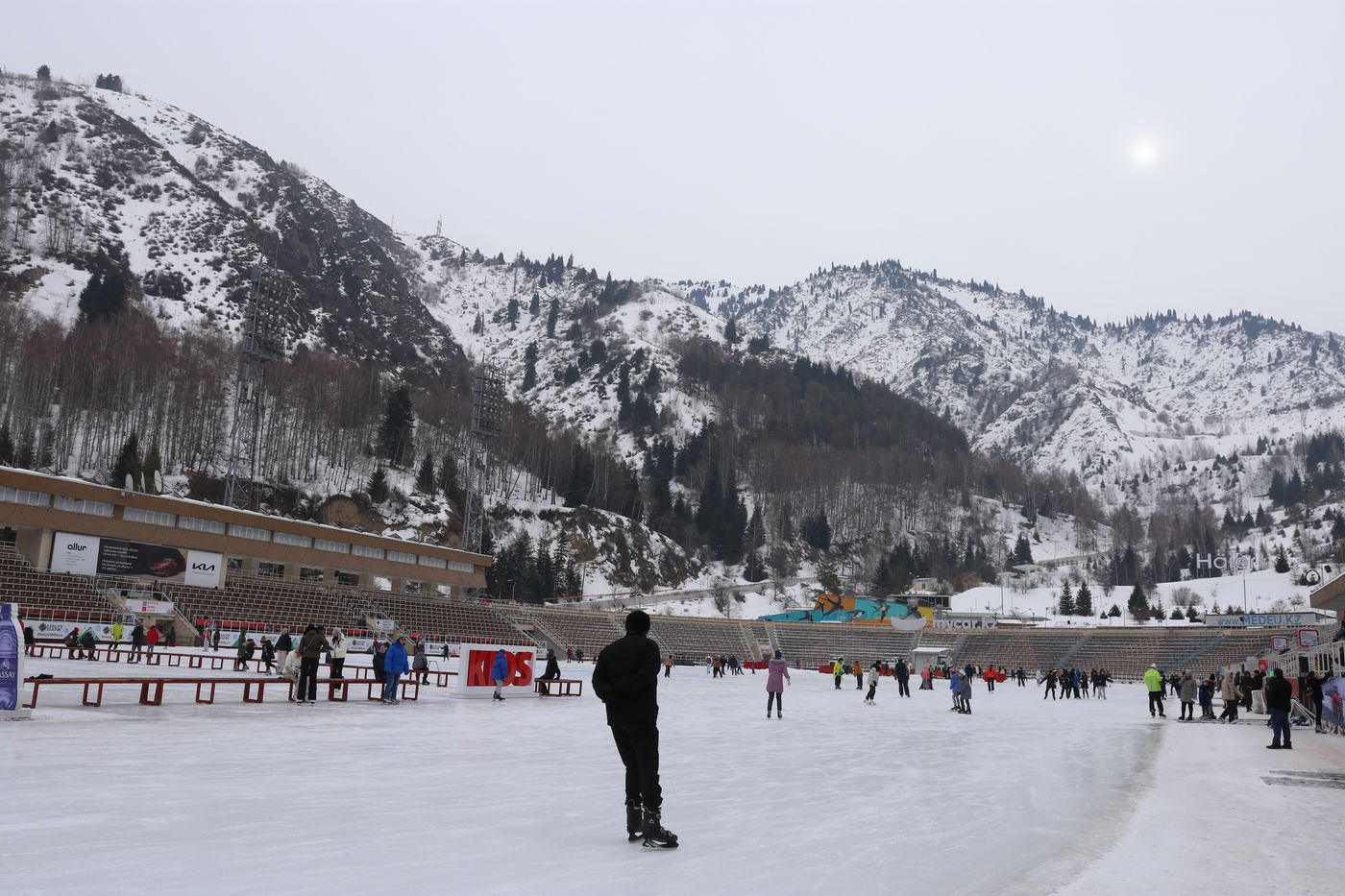
In 2015, Beijing beat Almaty to host the 2022 Winter Olympics. Almaty and Beijing are the only two bidders after numerous cities dropped out due to financial concerns and dwindling public support. Compared with Beijing, which once hosted the Summer Olympics, Almaty, a city with a tradition of winter sports, is obviously not as well-known as the former, despite the concentration of ice and snow sports venues and good snowfall conditions.
At the Medeo skating rink, a gray-haired old man gave two thumbs up when he learned that I was from China, "Xi Jinping, good!". Xi Jinping and Jackie Chan are the two Chinese names I heard the most in Almaty, and they are almost the only two Chinese names mentioned. In September 2013, when the newly appointed Chinese President Xi Jinping paid a state visit to Kazakhstan, he also visited Medeo accompanied by the founding leader Nazarbayev. It was also in this year that Xi Jinping delivered a speech at Nazarbayev University, and Kazakhstan became the birthplace of the “Belt and Road” initiative.

In September 2022, Xi Jinping chose Kazakhstan for his first overseas visit since the outbreak of the new crown epidemic. However, it is no longer Nazarbayev, the politician with the longest core power in the new regime after the collapse of the Soviet Union, who greeted him. In January 2022, after serious violent riots broke out in Kazakhstan, Nazarbayev, then chairman of the National Security Council, announced his resignation and completely left politics. The new president, Tokayev, will be re-elected at the end of 2022. In his campaign speech at a meeting with citizen representatives, Tokayev said, "Kazakhstan's full democratization process is irreversible, and the president is only employed by citizens. manager".
"Isn't Almaty very chaotic?" After returning to Beijing, more than one friend asked.
The last time Almaty was in the spotlight of international news was probably in early 2022 when large-scale protests erupted. The protests that began against the rise in the price of liquefied petroleum gas eventually turned into a state of emergency. According to data from the Kazakhstan Prosecutor General's Office, 238 people were killed in the riots.
A year later, in this forest city with a very high green rate, like a forest embedded in a national park, walking under the tall and thick street trees after snowfall, it is difficult to associate the calm in front of you with the turmoil a year ago. However, there is still a circle of iron walls surrounding the Almaty city government building that was set on fire by protesters. The outer wall of the TV station building that was also damaged is covered with a gray protective cover. A huge banner with a length of one meter reads "Unity of the Motherland, Unity of the Country, and Unity of the People" in Kazakh.
After the disintegration of the Soviet Union, although Kazakhstan has made great and small efforts to promote "de-Russization", Russian is still a widely used language. Google maps are often inaccurate, and navigation software dedicated to Russian regions is more popular. Very few people speak English, and for most of my time in Almaty, I struggled with translation software trying to understand the city more.
At Kazakhstan National University of Arts, I met several college students who were rehearsing traditional musical instruments, "Did you come to Almaty because of Dimash?" , graduated from this university. Dastan, who was born in a village on the border between China and Kazakhstan, is working hard to practice playing dombra and is preparing to go to the capital Astana to participate in a competition next week. Dastan said that the village where he grew up can see the Chinese side, but he has never been to China. When he couldn’t think of an English vocabulary expression, I opened the translation software and handed him the phone, and he switched the Russian-Chinese page Into Kazakh-Chinese, said "Russia killed my nation".
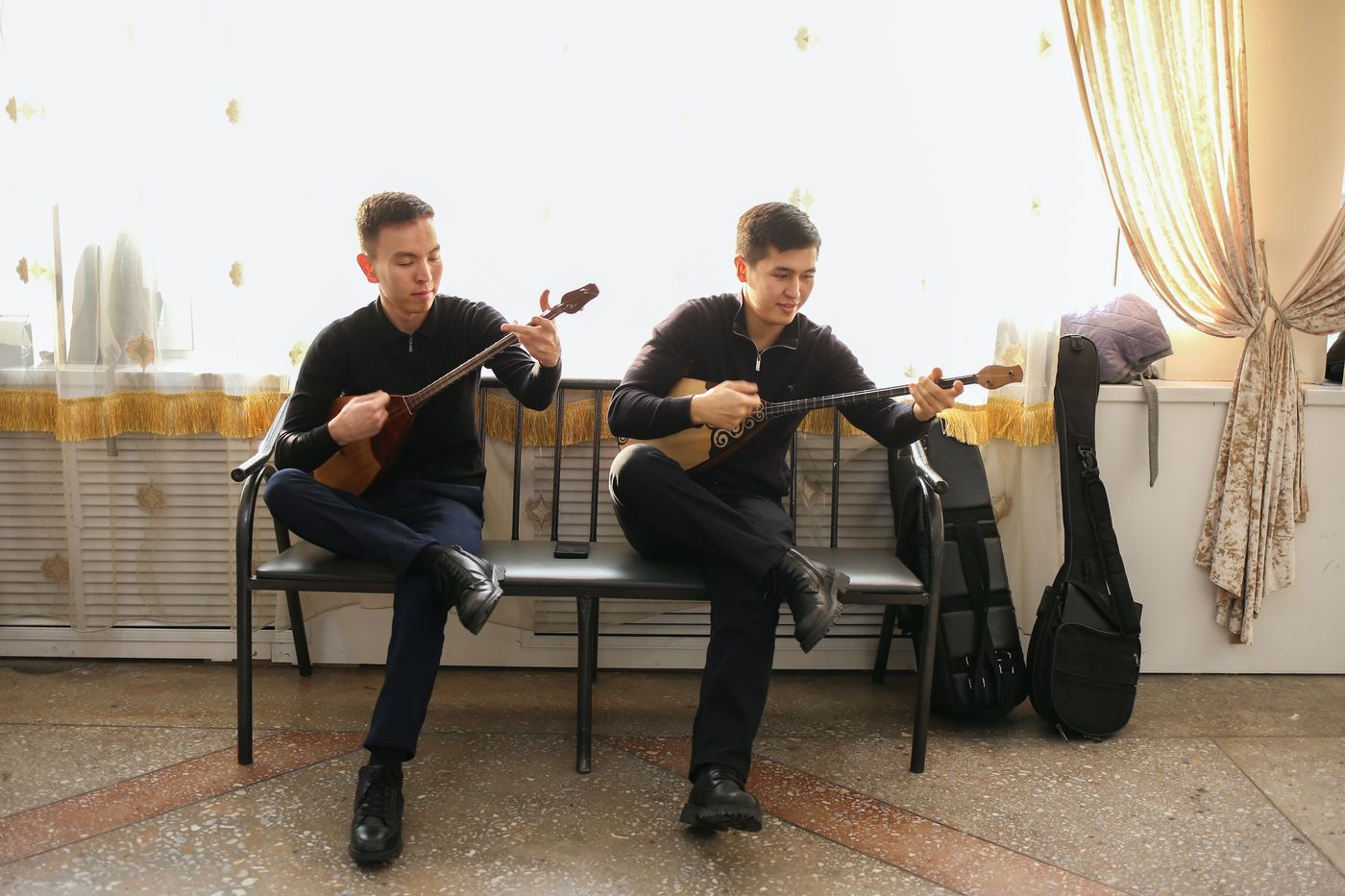
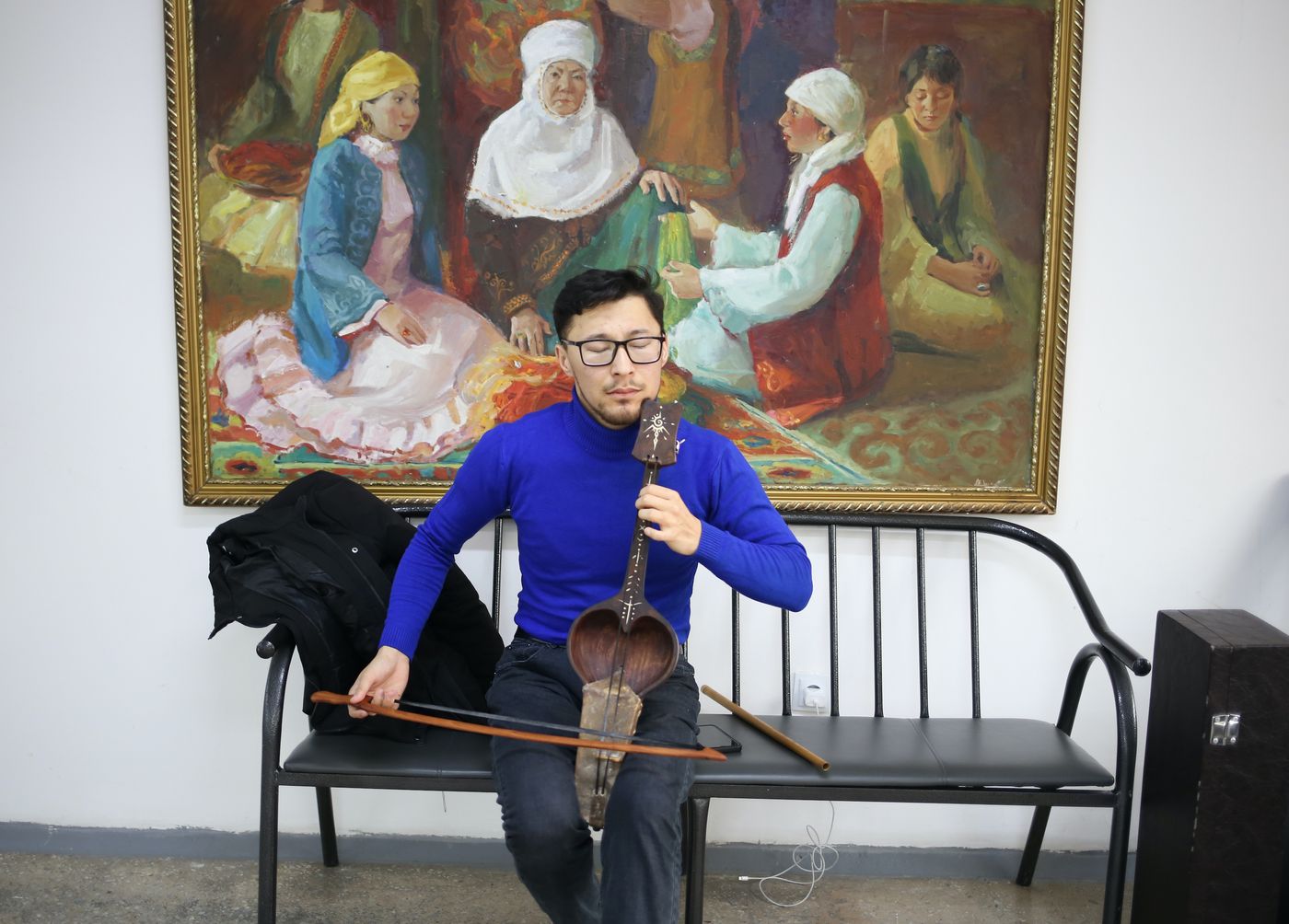
Maybe it's because I've lived in Beijing for too long, and in some respects, I think the two cities are so similar. Rows of tall poplar trees, heavy traffic, frequent smog, Khrushchev Tower, electric buses made in China. But there are also things I have never seen in Beijing. No matter it is early in the morning or late at night, I can always meet takeaways who ride bicycles or even walk. Sometimes two takeaways walk side by side, carrying huge yellow The backpack looks like a heavy shell. I really want to go up and have a chat with them. It seems that I thought of the timeout system of Chinese food delivery by reflex. Maybe they don't want to be disturbed by people who don't understand the language halfway, maybe they don't.
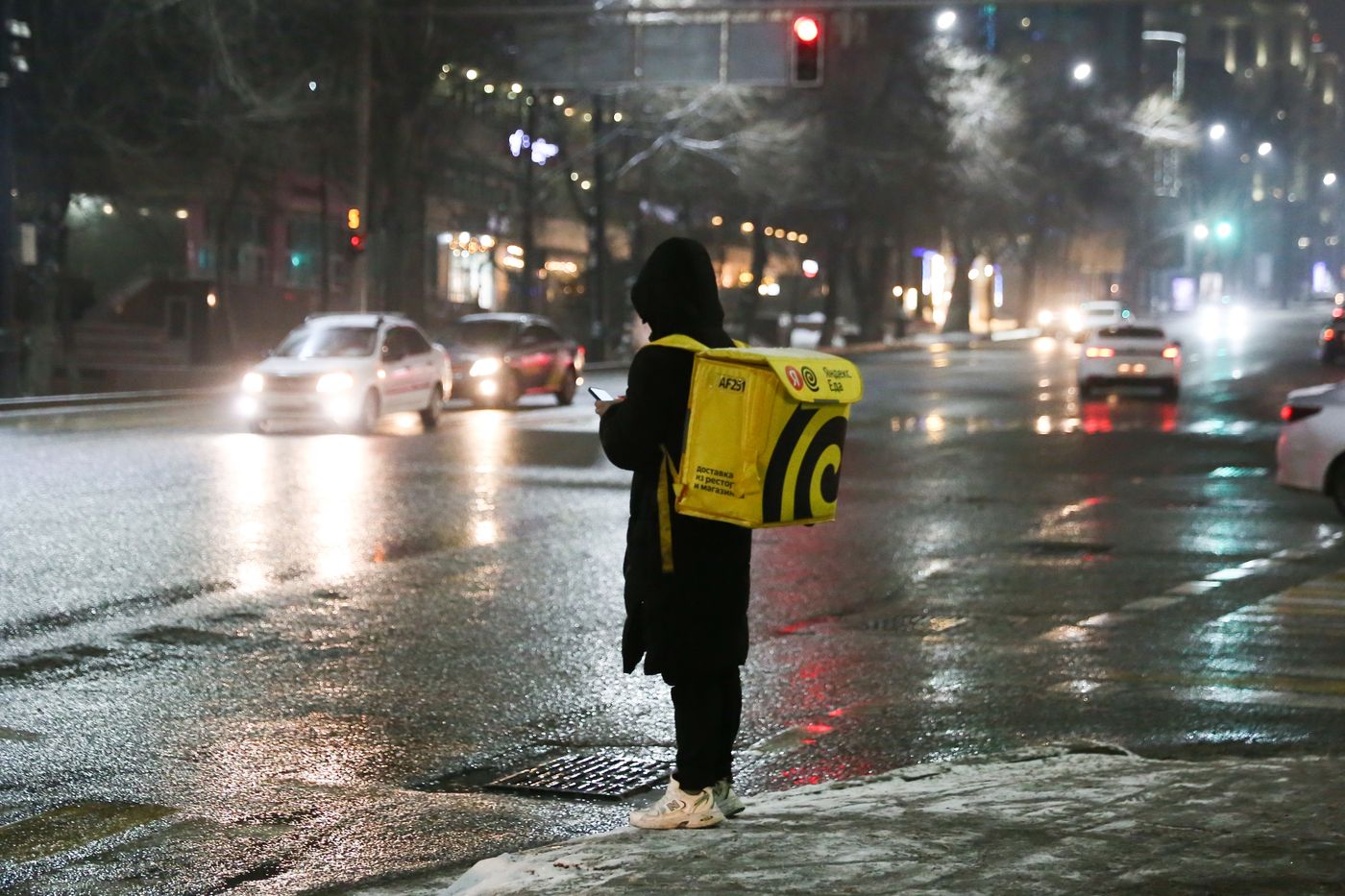
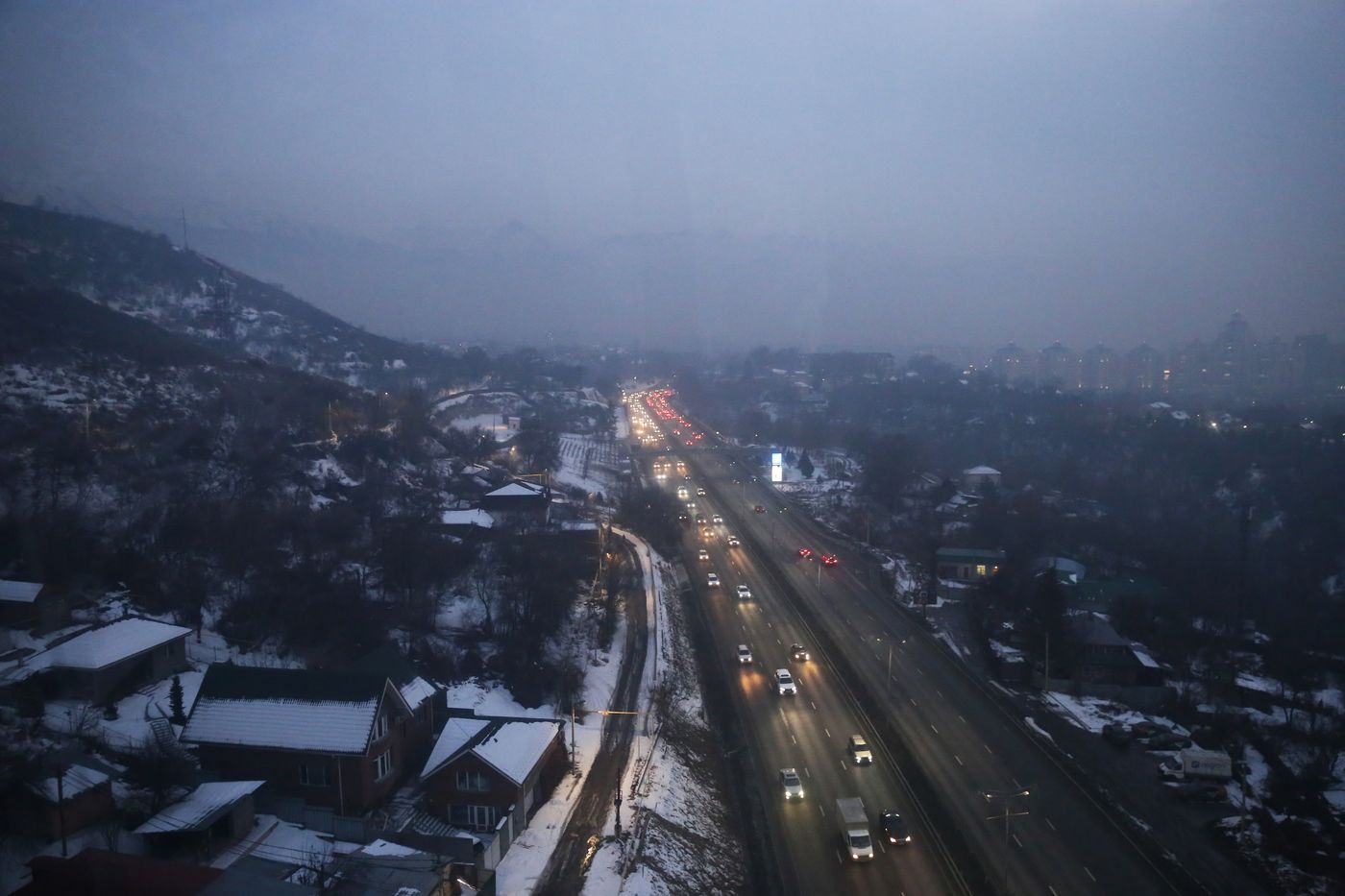
Leaving Almaty, it was an early morning before dawn, and the driver rushed to the port so that he could pick up the return carpool passengers earlier. It was raining outside, and the agreed time came, but the driver hadn't come yet. I walked into the restaurant, a Russian guy was having breakfast, I asked him in English if he wanted to turn on the light, he got up and jumped up, took a heart-shaped balloon from the ceiling and handed it to me. A Russian girl got it for Valentine's Day and she tied the balloons to our breakfast table every day.
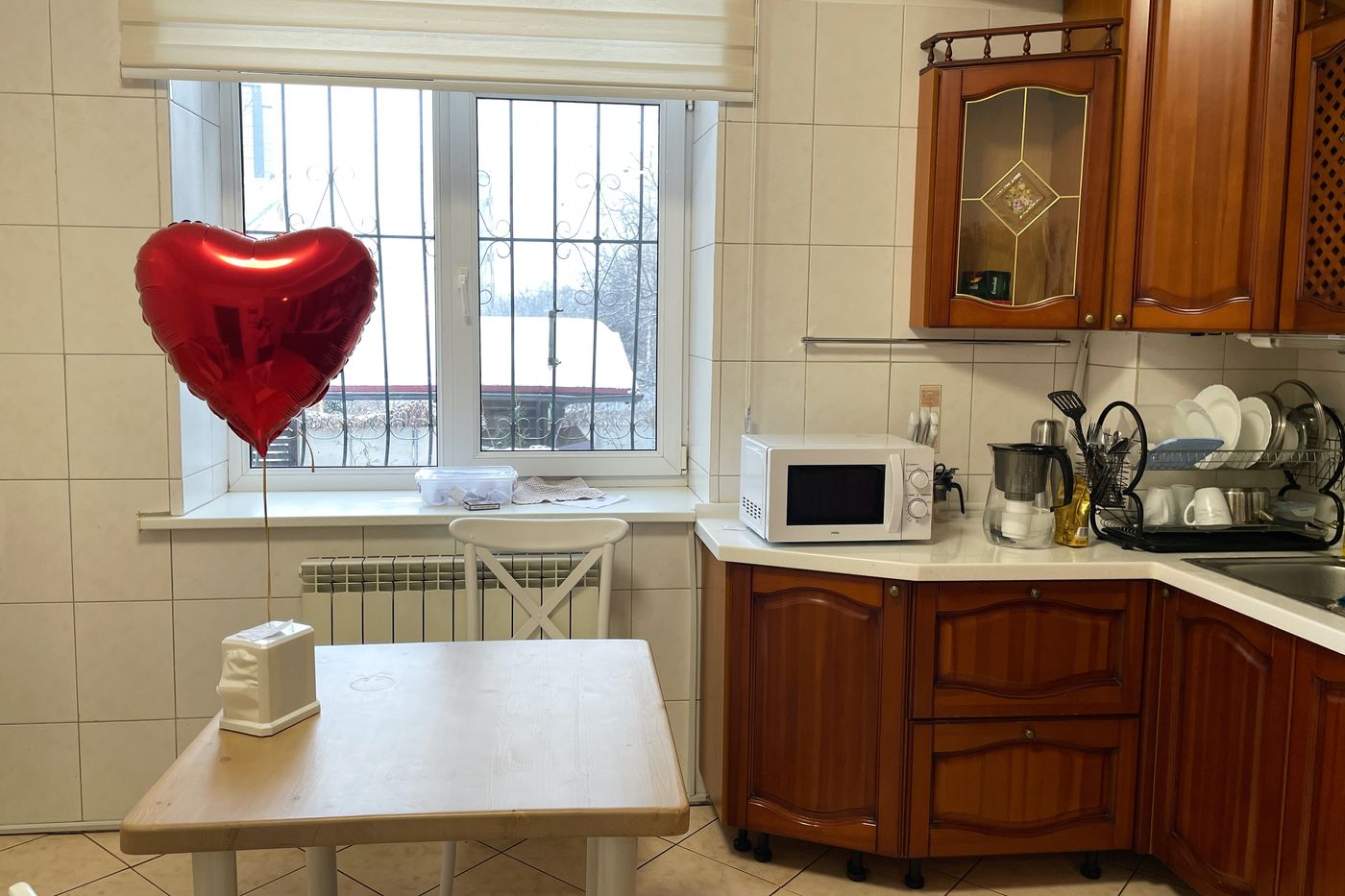
He works as a coach in a mountaineering school and has just come down from a snow-capped mountain at an altitude of more than 3,000 meters. We communicated through simple English and translation software while having breakfast. He has been here for five months. I asked him, is it also because of Putin? He nodded. He asked me how long I was going to be here and I said I was leaving soon.
At this time, the driver called. At this moment, Eugene is still on the 40-hour long-distance train to reunite with his family, Alexei is preparing to study Spanish hard for Argentina, Mikao, a Kazakh boy, is already decorating a new studio, and a girl from Xinjiang, who is carpooling with her, complains about the prices It went up too much, and L, who was traveling to Ukraine, could no longer be contacted.
On the way back to the Khorgos port, large tracts of grasslands and fields were covered with snow, horses and yaks appeared in groups, and a new batch of passengers with large and small bags waited for customs clearance on the opposite side. .
(partial picture)
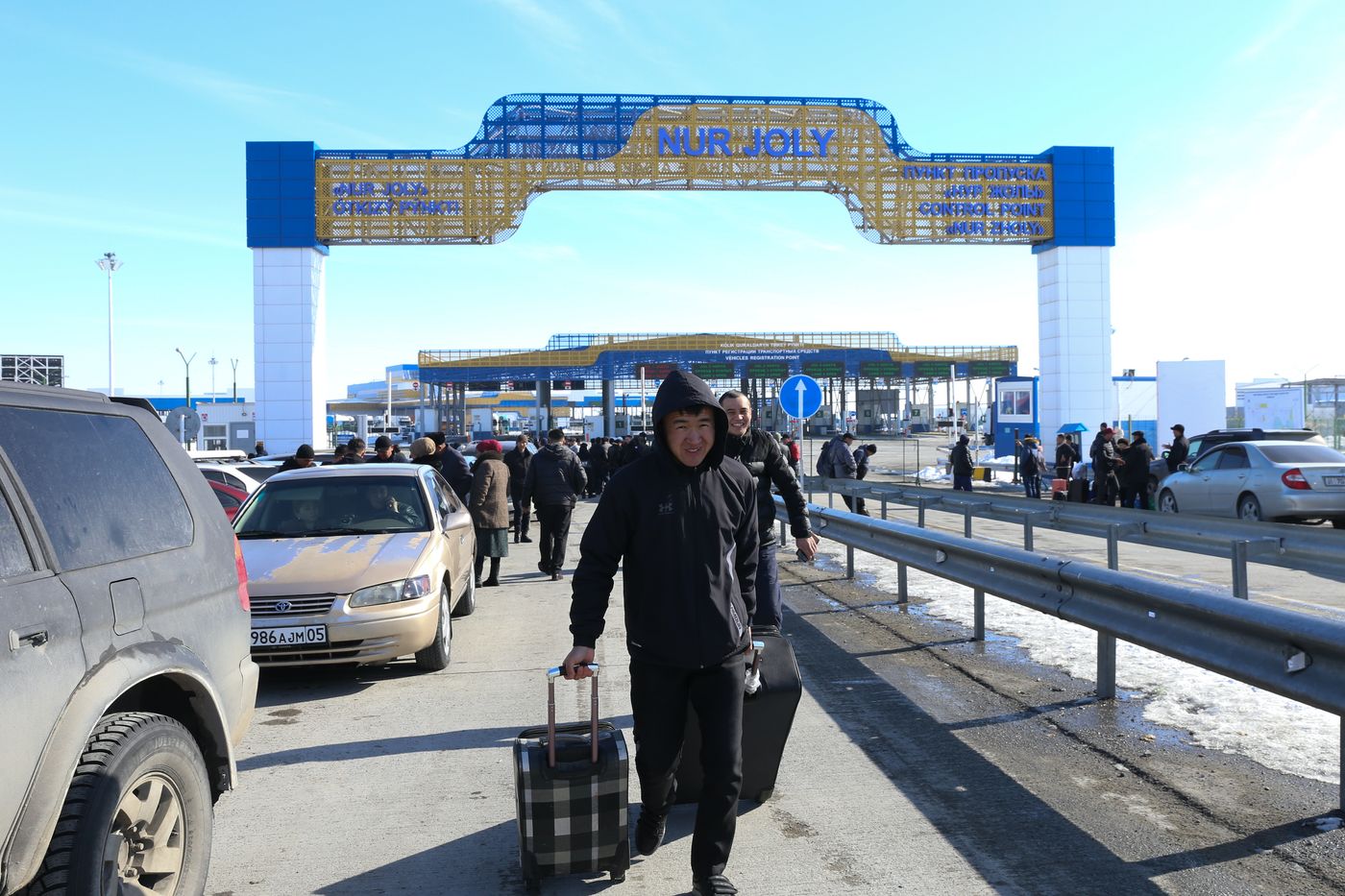
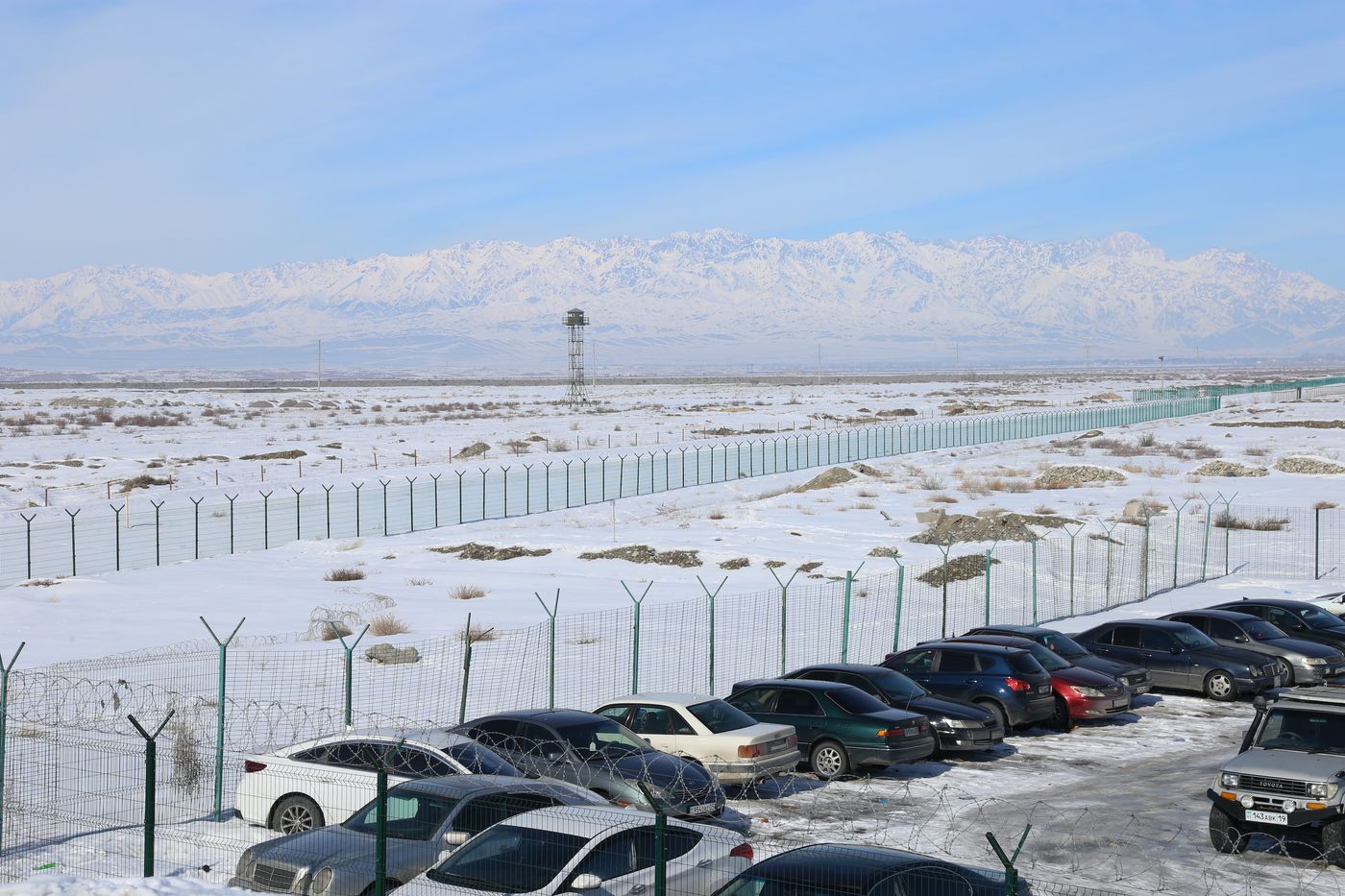
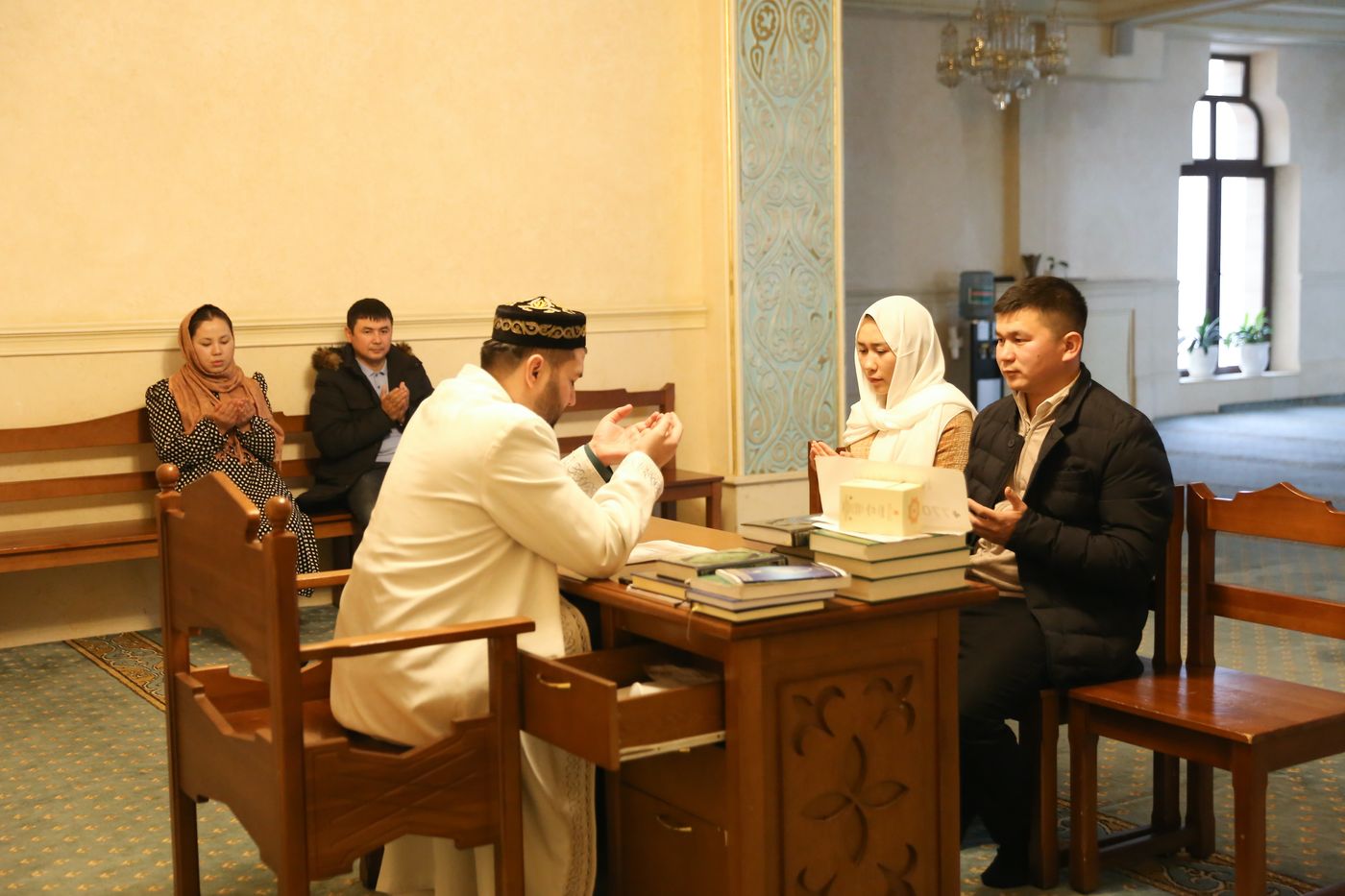
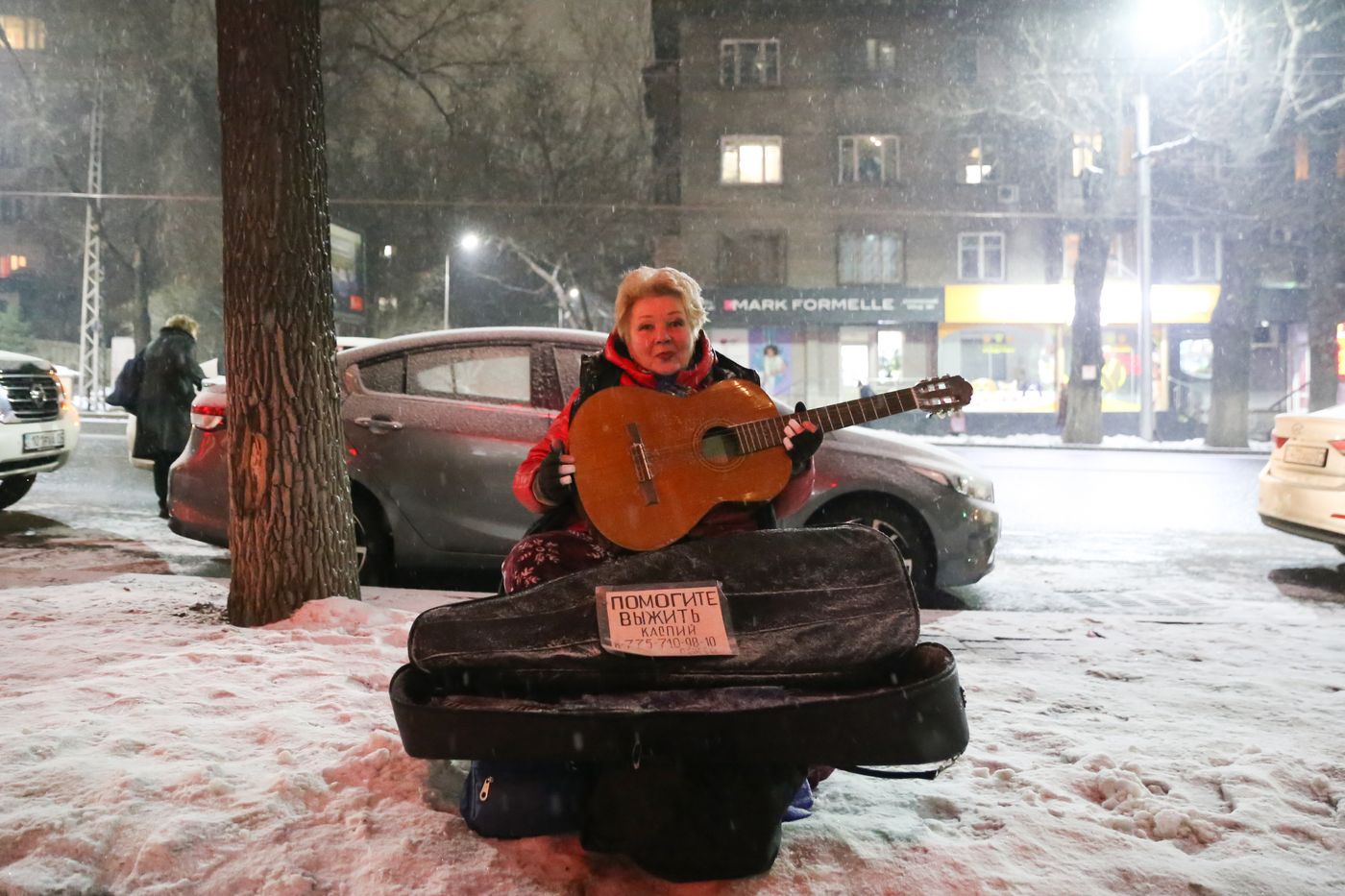
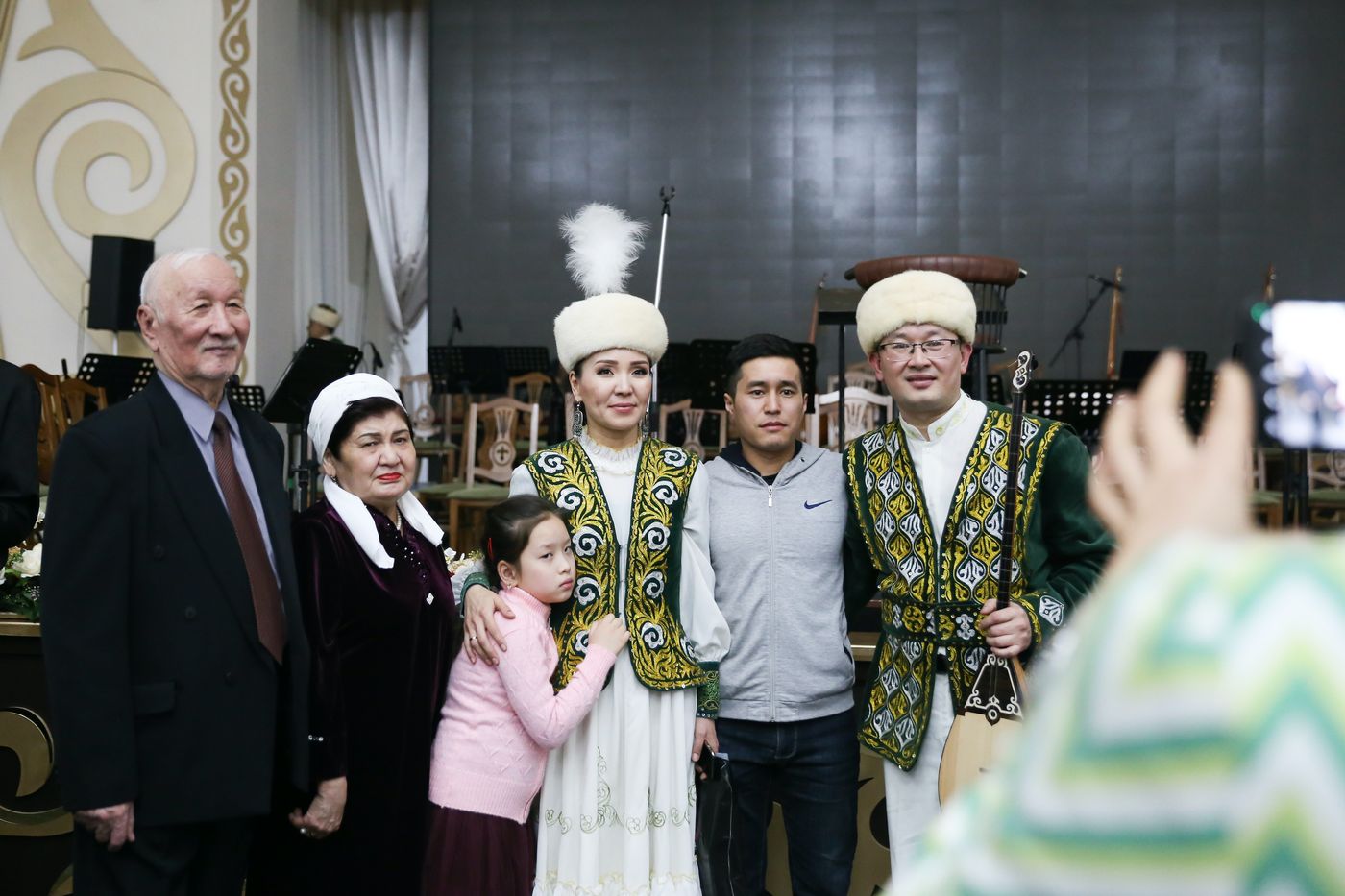

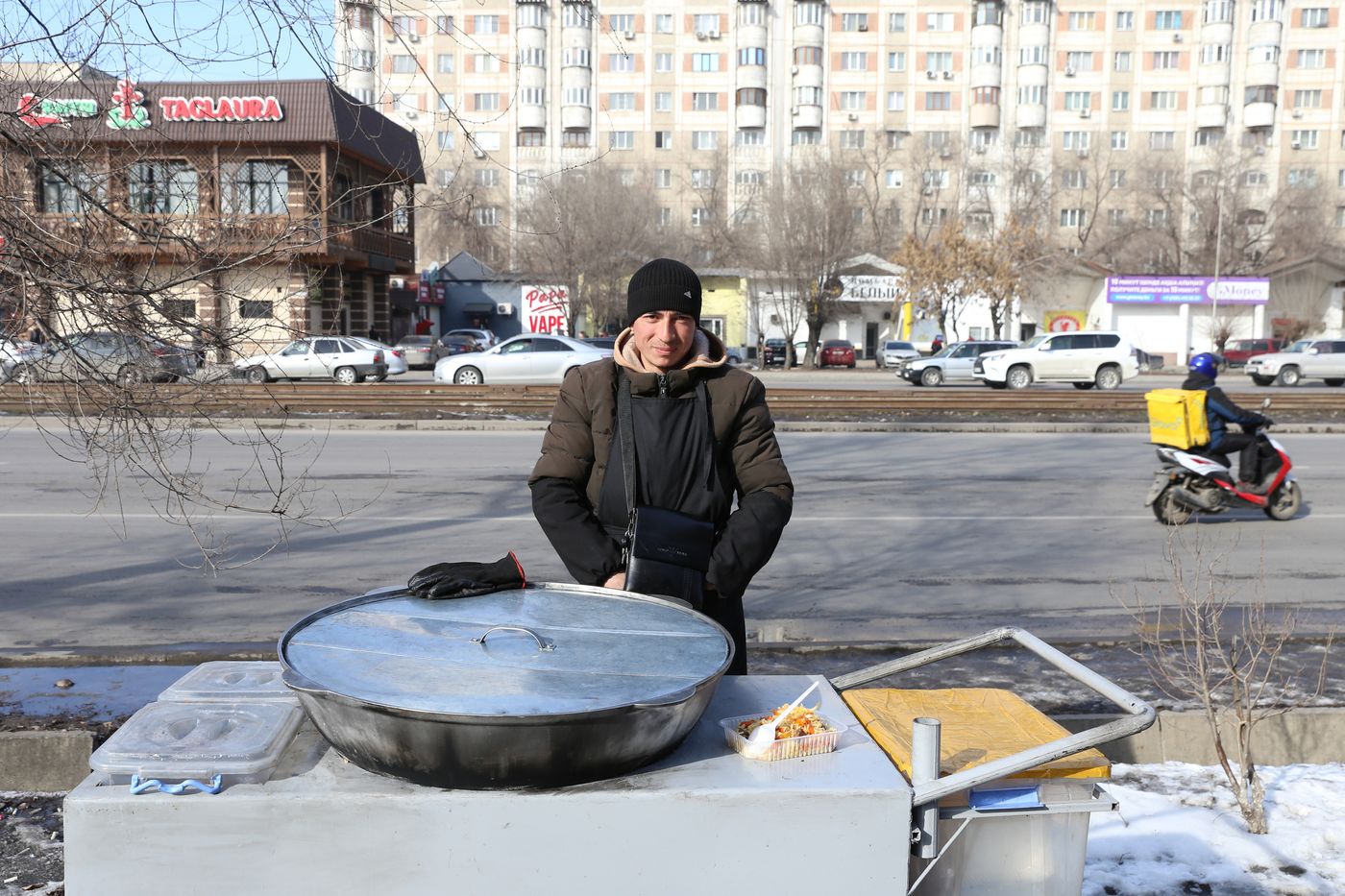
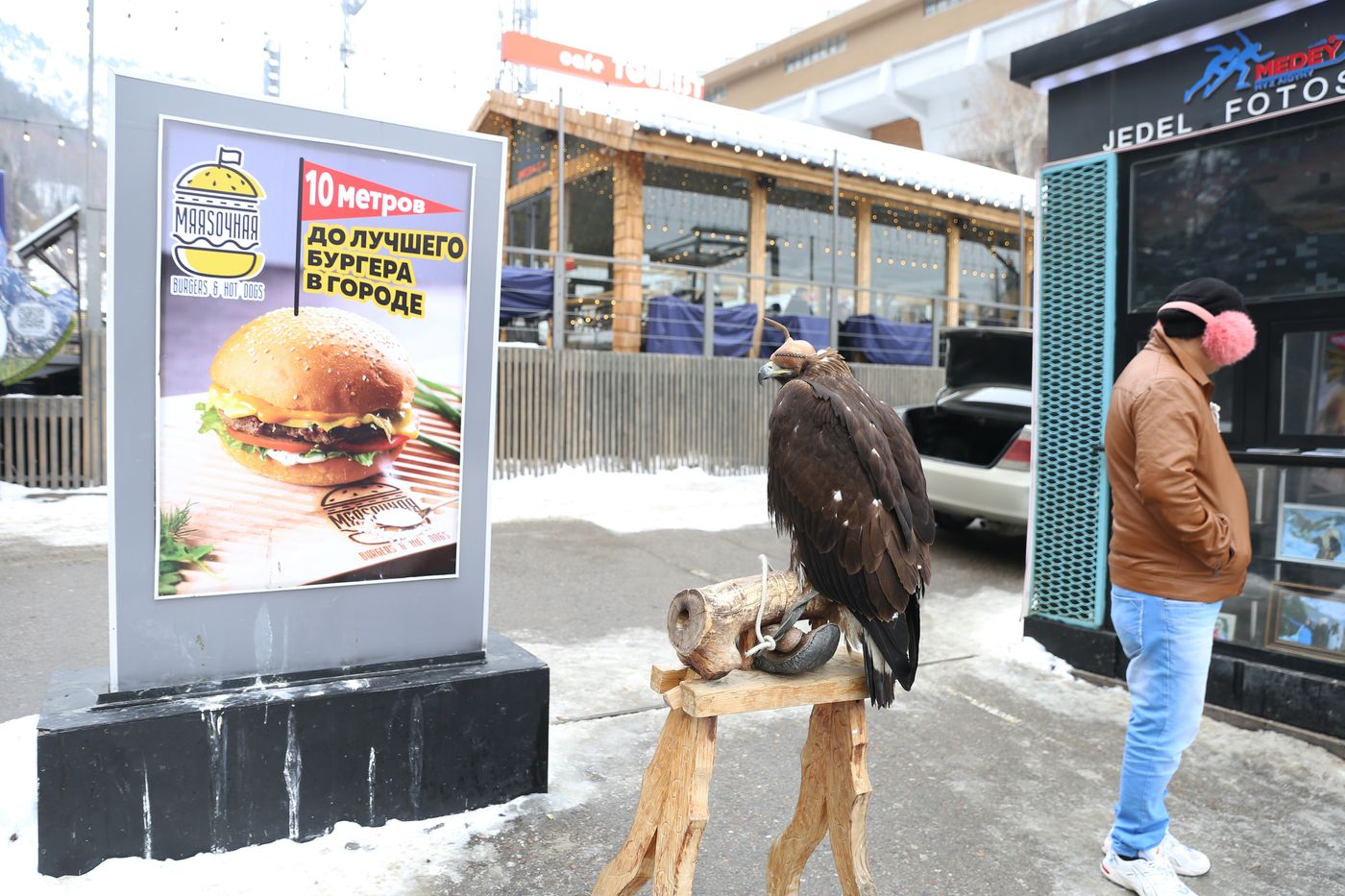
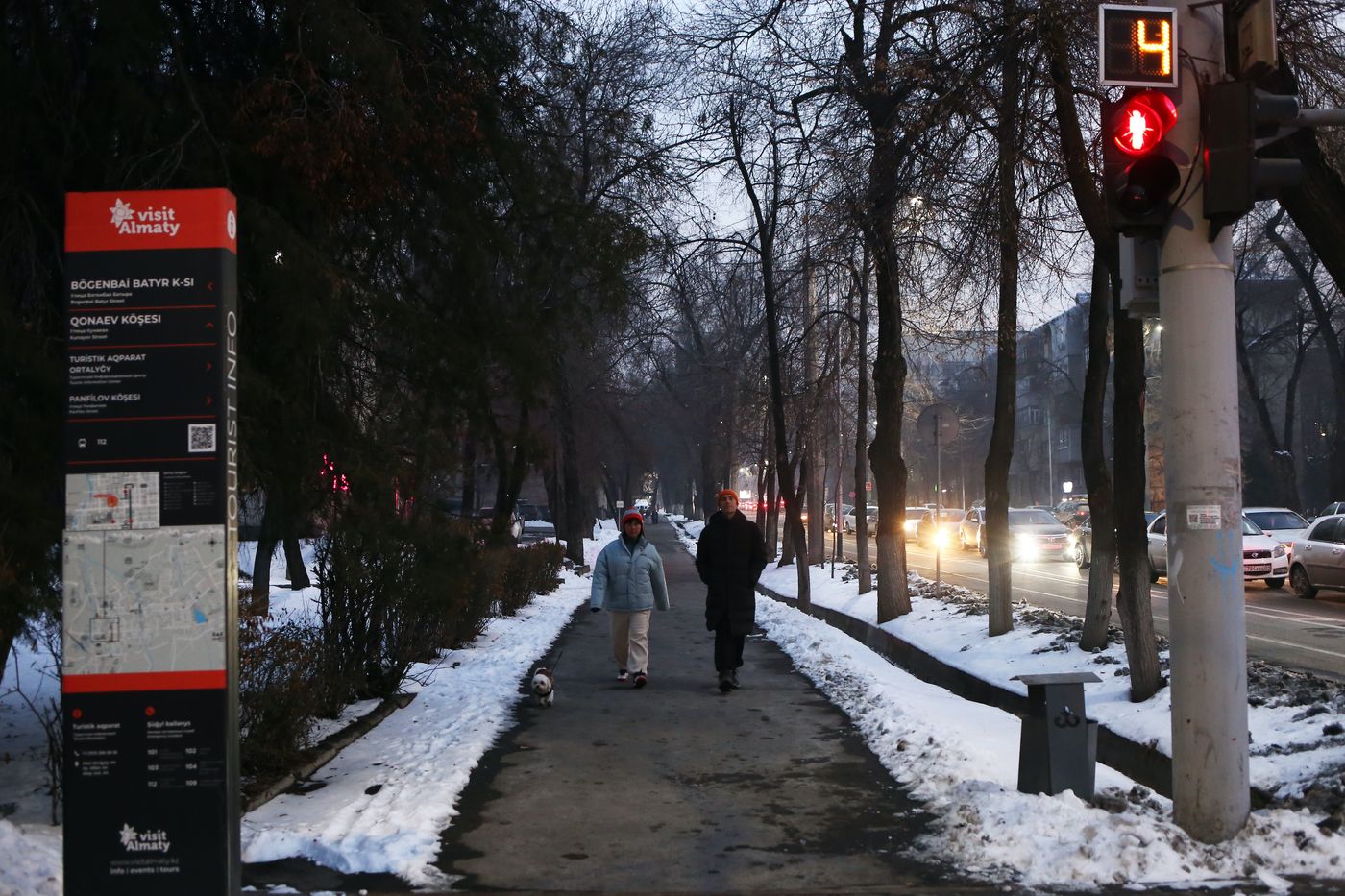
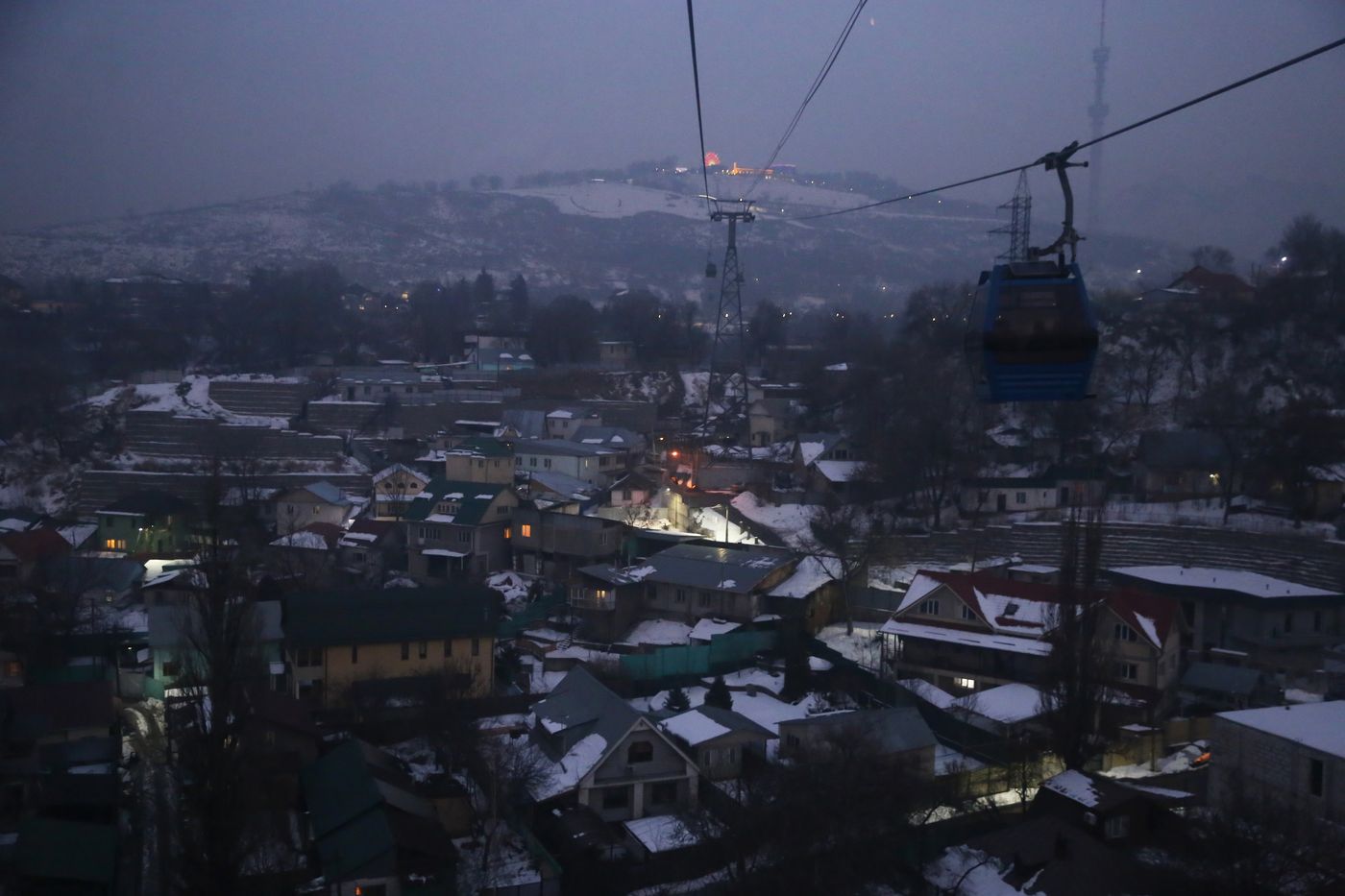
Like my work?
Don't forget to support or like, so I know you are with me..
Comment…